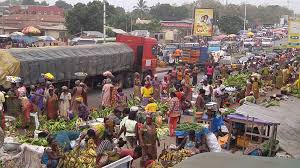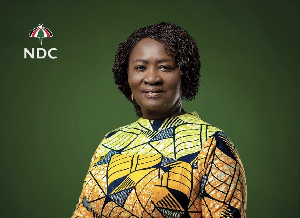 Every healthy economy has policies that promote saving which causes the economy to thrive
Every healthy economy has policies that promote saving which causes the economy to thrive
It is an undeniable fact, that financial transactions is the blood system of any economy. Therefore a healthy economy is known to have necessary policies and avenues that promote savings of the populations to go into various projects and investments, which causes economies to thrive. This indicates that, the correct functioning of a financial system, should be a priority to any government that seeks for economic growth.
One of the major indicators of a well-functioning financial markets is the kind of Institutions acting as intermediaries between people with extra cash and the people who need money to invest. This Institution major role is to pool the available cash and to allocate it to uses that promises high return and low risk.
It must be acknowledged, a well-developed financial system means, the private sector has access to credit and stock market financing. A typical scenario is, if a firm has a promising investment idea and could prove that, it has managed prudently its finances over time, it should be able to receive funding for its project. If a consumer wants to buy a home and has a low debt and a stable job, he/she should be able to get mortgage credit. If this is not so in Ghana, could current market indicators of the financial industry, convince as of a future fulfilling?
Furthermore, the most important indicator for financial system development, is the quality of it legal system. Could lenders collect their money, if borrowers refuse to pay? Could shareholders exercise their rights as minority owners in companies? Can one trust financial documents and Income statements? Are legal procedures streamlined and transparent, etc.? What is the quality of skills within the financial intermediaries that is the Banks and the Savings & Loans companies in Ghana, to be able to collect information about potential borrowers and decide who gets credits, able to watch, if the borrowers use the funds as intended to avoid bad debts. Finally the ability to pool together the Savings of many small investors.
Is the economy living to a future, where the financial system, makes it possible for individual, firms, and governments to easily make payments between themselves, where companies can easily receive and make payments for rent, supplies, wages and taxes, taking a cognizant view to the economic market structure of Ghana, which is deeply rooted in the informal market transactional deals.
Do current policies to the financial market, as in the approach of domestic market capitalization, communicating effectively to the short-run of Ghana’s economy? If the evidence is no, then what about the long-run effect? In my opinion and on the bases of empirical analysis, the assurance is very weak.
Despite the presumption of a kind of positive rating of a sound economic health for Ghana by a rating agency, it rather visible beyond theoretical scope that, the nation is afflicted by a man-made banking crises, resulting into a credit crunch causing disfunctioning to Enterprises, expected to operates in their maximum capacity and contributes positively to gross domestic production.
The current economic indicators strictly define high cost of production on the soil of Ghana comparative to it international trading partners and competitors. Therefore in a simple business logic, most producers, in an attempt to avoid the loose of the few capital at hand, due to unfavourable economic environment, had resort to low cost production economic environments to imports as a distributors, using the dollar as a unit currency for transactions, hence stressing the cedi value stabilization, the reason of continual depreciation.
How could the cedi hold it stabilization authority, when the entire system is causing a hyper-growth and promotion to commerce industry in the detriment to production industry? How long will such an adhoc prepositions and approach of Bank of Ghana, to inject dollar currency into the economy in other to avoid cedi-depreciation against it external counterpart, be viewed as an unreliable method. In my opinion, what is required of Bank of Ghana, is to be brutally honest to the system by requesting the government to cut down the huge budget on salaries for government appointees, in simple put the political class of the Republic of Ghana, to be able to revive the economy back to it feet’s, with a sound financial system and a low debt portfolio.
The Economic managers, should not forget the law of unholy trinity in international finance and economics, which argue that, a country could not have free capital mobility, an independent monetary policy and fixed exchange rate all at the same time. You either apply one or two of the options to rebounds your economy back to its feet. Hence my caution is to humbly request the team to re-look deeper into their policy strategies.
Academic Paper for Reference
1. Senzu, T. E. (2019), Theoretical perspective of dynamic credit risk analysis and lending model; effective to enterprises of fragile economy. Published by Econpapers and University Library of Munich, Germany. https://econpapers.repec.org/paper/pramprapa/91789.htm
2. Senzu, T. E. (2019). The empirical evidence of corporate tax impact on private investment of developing countries using Ghana as a case study. Published by Munich University, Germany. Paper No. 92329. https://mpra.ub.uni-muenchen.de, Republished by University College of Management studies, Ghana. [* 2018 Revised Paper]
Tsenzu@ucoms.edu.gh Dean of Research University College of Management Studies, Accra-Ghana. Fellow of Frederic Bastiat Institute












